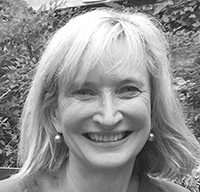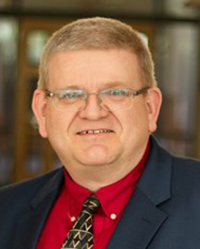Each year, 30% to 40% of United Methodist churches receive new pastors through the process known as “appointment.” Unlike other Protestant churches that “call” their own pastors, United Methodist clergy are “appointed” by a bishop to a church in an annual conference.
Many pastor changes occur because of retirements. Sometimes a change in pastors occurs because a congregation has asked for a better fit for their DNA. Often, a change is made because a bishop and his or her cabinet, who act as the conference’s personnel committee, try to match a clergyperson’s skills with a church’s ministerial needs. However a pastoral change comes about, a new pastor and a church typically spend their first year building enough partnership to move forward together in ministry.
“Onboarding” uncovers the unspoken aspects of a congregation’s and a pastor’s identities.
Now a process known as “onboarding,” created by a United Methodist laywoman experienced in human resources, speeds up that process while it uncovers the unspoken aspects of a congregation’s and a pastor’s identities so they can fit together better from the start.
A video for the Candler Center for Christian Leadership where the program is housed describes onboarding’s two goals:
- A church gains “deep knowledge” about its new pastor
- An incoming pastor receives “early information” about the church’s culture, hopes and dreams
United Methodist-style “onboarding” is the inspiration of lifelong church member Claire Bowen of Atlanta. As a human resources professional, she spent more than 30 years in the corporate world helping newly hired top executives connect with their staffs more quickly by honestly identifying mutual expectations, work-culture quirks and other details.

Claire Bowen
Bowen grew up in Statesboro, Ga., at First UMC, and later, after college, moved to Peachtree Road UMC in Atlanta. After a 20-year pastor retired at her church, the new pastor, Bill Britt, discovered Bowen’s corporate work but too late for his early years. So Bowen offered to conduct an onboarding for one of his pastor friends.
That’s how Bowen ended up in 2013 “onboarding” Davis Chappell at Brentwood UMC in Nashville, Tenn., one of the city’s most thriving congregations. That experiment went so well that as she drove home to Atlanta from Nashville, she remembers thinking: “God, this is what I want to do for the rest of my life.”
UMC unique personnel process
In the 10 years since her revelation, Bowen perfected onboarding for the unique United Methodist personnel process, which she acknowledges “has challenging pieces for including everyone in the UMC structure.”
The process now works like this: When a new appointment is set, the conference helps the incoming pastor issue an invitation to the congregation’s lay leaders to meet with a certified onboarding facilitator about their hopes and concerns for the new pastor. If the church has a large staff, a separate session is set up to hear the staff’s questions and advice so they can educate the new pastor about their church and community.
The new pastor welcomes the laity to the session, invites them to be completely honest about their concerns, and then leaves, turning the meeting over to the facilitator. In turn, the facilitator asks participants a set of 12 pre-determined questions such as:
- How would you describe your church’s DNA?
- Where are the “landmines,” the “sacred cows” of the congregation?
- What do you already know about your new pastor?
- What do you wish to know about your new pastor? “On this question, they can ask anything,” Bowen said.
Questions, which often are adapted to each congregation’s identity, aren’t published in advance so there’s no possibility of one perspective dominating the conversation. Answers are written on a flip chart, and cellphone photos are taken of each sheet and sent to the waiting pastor.
When the facilitator’s conversation with laypeople is complete, the facilitator coaches the pastor to see if there are any issues needing clarification. The pastor returns to the group and the facilitator sits in the back allowing the pastor to be in charge now. The give-and-take of the meeting ends with a group prayer for the leadership of the new pastor.
A gift for Candler
In January 2023, Bowen took her program to a member of her church, Jan Love, then dean of UMC-related Candler School of Theology at Emory University in Atlanta. She gave Candler the copyrighted program and agreed to create more opportunities to certify conference UMC leaders in team building models and strategic vision work.

Jaye Johnson
By September 2023, Love, who recently retired after 17 years as dean, set up the Candler Center for Christian Leadership, complete with initial funding. Celeste Eubanks, a human resource professional from the Alabama-West Florida Annual Conference, joined Candler as the center’s director at the same time.
Since she began the process for pastors, Bowen estimates she’s personally conducted at least 150 onboarding sessions, and the program has trained at least 230 facilitators to guide the “new leader” process throughout all five U.S. jurisdictions of The United Methodist Church.
One of those first “new leaders” was Bishop David Graves, who in 2016 was headed for his first assignment as a bishop in the Alabama-West Florida Annual Conference. Bowen said Bishop Graves — who moved to lead Kentucky, Tennessee-Western Kentucky and Central Appalachian Missionary conferences Sept. 1 — found onboarding so successful he’s now the advising bishop for the Candler Center for Christian Leadership.
“Once the relationship between the pastor and that kind of congregation starts to go downhill, it’s nearly impossible for it to go back uphill.”
Now the Candler-housed process can train more UMC conference facilitators to conduct these onboardings with Eubanks’ guidance. Eubanks’ administration allows Bowen to train more conference staff to deliver onboarding because trained clergy who serve on the regional unit often go back into local pastorates, requiring others to be certified to take their place.
Iowa Annual Conference used onboarding to great success this summer, said Jaye Johnston, conference superintendent for congregational excellence and new communities of faith. He said his first experience with the onboarding process was the assignment of Bishop Kennetha Bigham-Tsai after her election in November 2022.
Johnson said he’s found, as with Graves’ experience, that a bishop who benefits from onboarding wants to provide it for all pastors going to new appointments.
“We use a congregational assessment tool to make appointments with all our churches,” Johnson said. “About 47% of our churches score what we call ‘clergy focused,’ which means that they’re not dominated by clergy, the church thinks well of itself (no matter who’s appointed their pastor).
“We know from the (assessment) that once the relationship between the pastor and that kind of congregation starts to go downhill, it’s nearly impossible for it to go back uphill,” Johnson said. “So, it’s really critical in those churches to start well and continue that relationship well.”
Johnson said Iowa has conducted 10 onboarding sessions with these critical churches this year. He said they’ve had enough positive results that conference leaders want to expand the program over the next few years to include all full-time appointments among the 522 churches in the annual conference.
Johnson said onboarding proved highly instructive to Iowa church leaders because the new pastor and church members “address all the things that came up that are on the flip chart as they go through the process.”
“If one person says it, there are 10 people thinking it,” Johnson said. “The process allows us to have a really good conversation about questions that people have.”
Cynthia B. Astle has reported on The United Methodist Church at all levels since 1988. She serves as editor of United Methodist Insight, an online journal she founded in 2011.


